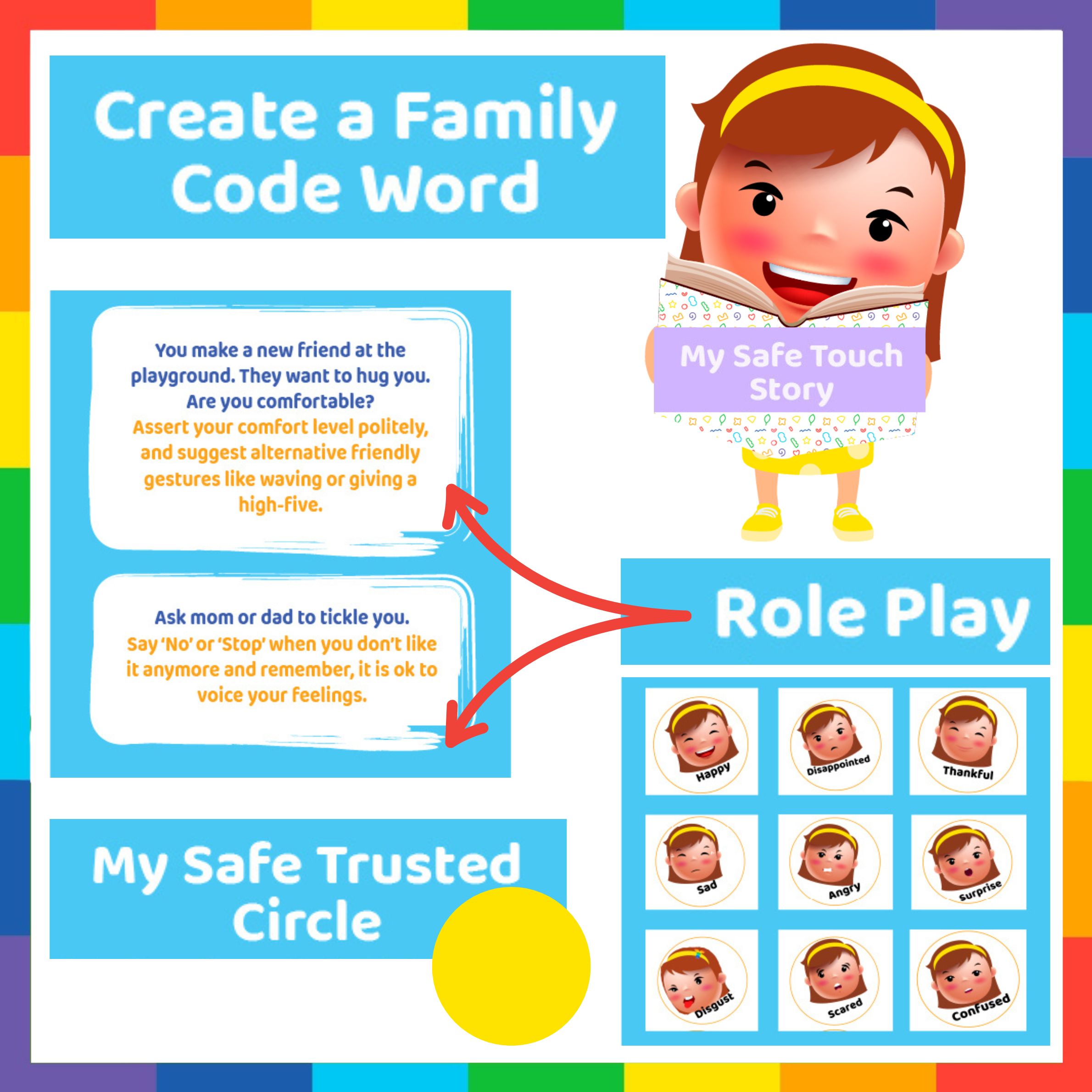
Quick Bites
How to Enhance Parenting and Workplace Success?
June 11, 2024
Related
Topics

Hey
-

Resilience-Building – Easy Checklist for Kids of All Ages
August 13, 2025
-

-

How to Ensure Body Safety of Your Kids? – Summary
February 27, 2025
-

Debunk Common Myths About Safe Touch: Know the Truth
February 23, 2025
-

How to Reinforce Body Safety and Consent?
February 16, 2025
Ready for more?
Hey
Sign up for Rainbow Kiddies newsletters for more stories and updates
Is there a sure way to enhance parenting and workplace success? “Yes”, says one of the articles that I happened to read recently. It also explains in detail how this can done. Furthermore, it is from a very very reliable source.
So, this is a quick summary of the article “Building Core Capabilities for Life” by the Center on the Developing Child at Harvard University. It explores the essential skills adults need to succeed in parenting and at the workplace. These core capabilities include planning, focus, self-control, awareness, and flexibility. They are built on a foundation of executive function and together fall under the umbrella of self-regulation and. The article emphasizes that these skills are crucial for managing life, work, and parenting effectively.
This was one of the articles that I had referred to while writing about how caregivers can help develop emotional regulation in kids. Also, if you had noticed I had clearly mentioned in that article that you should help yourself first before you can help anyone else, even your child. So, I thought I should at least share some of the key points shared in this 15 page long article. Hope this helps and hope you will be able to put it to good use to help yourself or someone you know. So, let us jump in right away to see what it takes to harness parenting and workplace success.
Key Points in the Article

The Issue:
- “Adults need to focus, plan, avoid distractions, and shift behavior according to different demands.” Stress and adversity, can be caused by multiple factors like poverty, unsafe environments, domestic abuse, unhealthy lifestyle, uncertainty about upcoming events, etc. This can impair both parenting capabilities and productivity at work. The article emphasizes that if this issue is fixed our economy will prosper, and the future generations will be in a much better place in every way.
Skills Required in Adults for Parenting and Workplace Success:
- These are planning, focus, self-control, awareness and flexibility. This encompasses self-regulation which is built upon a foundation of executive function. “Self-regulation is the set of capabilities that help us to draw upon the right skills at the right time, manage our responses to the world, and resist inappropriate responses.” The article explains that self-regulation includes:
- intentional processes – goal-directed behavior
- automatic processes – impulsive behavior
- Executive function is categorized as:
- the ability to resist impulsive behavior,
- ability to process information, and
- the ability to adjust to new demands or situations.
- Further, attention or awareness of self, others, surroundings and situations, is very critical to enable self-regulation.
- Through regular practice, these skills can be built and improved over time.
How do these Skills Required for Parenting and Workplace Success Work:
- When there is a situation, automatic response is what goes first. Then the attention system alerts the intentional system which analyses the situation and plans, focuses, prioritizes the response. It also gives feedback to automatic system on its initial response.
- While in stress, or for someone who has experienced adversity as a child, the automatic system will be into handling perceived threats. In such cases the intentional system needs to be called upon and depleted too often.
- This research says that availability of trusted friends, family, safe environment, and economic stability supports positive responses, whereas absence of such support can trigger negative responses.
Development of Skills Required for Parenting and Workplace Success:
- These capabilities develop early in life but can continue to be enhanced through adolescence and into adulthood.
- Most importantly, supportive responsive relationships, and safe environments will help develop such skills at a very early age itself. And that is exactly what every parents wants for their children.
- Adversity and stress can derail the development and use of these skills, emphasizing the need for supportive interventions.
- This research says that by age 1 children have already started developing focus and attention. By age 3 they can already use executive function skills in remembering and following rules, etc. Ages 3 to 5 show further improvement in such skills (self-control and flexibility). Then significant increase is said to occur between ages 15 and 23.
- Development of relevant areas in the brain can start before birth. This can get negatively impacted by bad nutrition, substance or alcohol abuse, stress, etc. Meanwhile enough sleep, mindfulness, safe environment, good nutrition, etc., will impact the development positively.
Impact of Stress:
- Early life stress can redirect brain development towards threat response, while stress in adulthood can overload the ability to use these capabilities, leading to reliance on automatic responses.
- Chronic stress can have lasting effects, making it harder to engage in goal-directed behavior and affecting self-regulation and executive function.
Building and Restoring the Skills Required for Parenting and Workplace Success:
- This is important:
- for us because it helps become better parents and be successful at work.
- for our kids because we can support them the right way and help develop these skills in them.
- To sum up, this is definitely going to solve umpteen number of issues faced by every single person in this world and hence, help us create a better future.
- Reducing stressors and providing supportive environments can help build and restore these skills.
- Streamlining services, providing clear instructions, and offering coaching and positive feedback (in a respectful manner) are essential. This will especially help develop such skills in adults who experience any type of adversity.
Possible Interventions
- Help people keep and maintain task list/ reminders so they can prioritize their tasks. This will help them plan and focus better.
- Training in self-regulation and executive function, including techniques like cognitive behavioral therapy(CBT) and mindfulness, can improve these skills. For instance a multi-tasking parent (working, caring for kids, doing household chores) can benefit through CBT by being made aware of:
- how they feel in such a particularly stressful situation (child starts crying while they are juggling tasks),
- what causes the feelings,
- how to regulate their feelings and so on. Finally, they can come up with a plan to handle the situation at hand (prioritize, act later on tasks that are less urgent, etc.) and cope well.
- Another technique might be to consider alternatives while in a stressful situation. The example they have given is the morning rush while getting kids ready for school. Instead of seeing it as hectic we might as well think of it as playing “grown-ups’ together.
- Yet another techniques they have mentioned is to hold the automatic response and take time to activate the intentional one. For instance, when angry stop and think, take deep breathes and remember your long term goals. They say that such interventions have even helped people with brain injuries or ADHD to improve planning and attention skills.
- Interventions which help in goal setting, planning, focusing – like supporting with decision making, motivational interviews to identify core values of a person, etc., can be helpful in developing such skills. Further, one such positive result can encourage anyone to continue using the helpful strategies to come up with appropriate responses each time.
Policy and Practice Implications:
- Understanding the challenges faced by individuals in poverty and adversity can inform better policy and practice. Efforts should focus on reducing stressors and enhancing core capabilities from early childhood through adulthood.
- As we can see this is something that will happen only if our whole world takes it up to act on it in unison. We have a long way to go.
Conclusion
By addressing the root causes of stress and providing targeted interventions, we can foster resilience and harness both parenting and workplace success. Meanwhile, one way to tackle the root cause for an aspiring parent would be to make sure that you are really ready for the ride. See if our article on how to assess readiness to start a family helps you on this one.
PS: Apologies for this quick bite being quite a long bite. Since it is a summary of a rather long article published elsewhere, I thought it would be only appropriate to have it in the Quick Bites. Hope this article made a lot of sense to you. It did to me for sure, also being the reason why I had it summarized here for sharing with my fellow parents and caregivers.
As always, enjoy being parents and love the journey!
Sign Up for your Free Parenting Guide: “10 Everyday Ways to Raise an Emotionally Strong Child”

